
Chiang Mai Province: A Jewel of Northern Thailand
Chiang Mai Province, nestled in the mountainous region of Northern Thailand, offers a captivating blend of ancient culture and natural beauty. Known as the 'Rose of the North,' Chiang Mai is home to over 300 Buddhist temples, each with its own unique history and architecture. The most famous of these is Wat Phra That Doi Suthep, perched on a mountain with breathtaking views of the city below. Visitors can also explore the historic Old City, surrounded by ancient walls and a moat, where traditional Thai wooden houses stand alongside modern cafes and boutiques. Nature lovers will find no shortage of activities in Chiang Mai Province. The lush landscapes provide a perfect backdrop for trekking, zip-lining, and visiting elephant sanctuaries. The Mae Sa Valley offers stunning waterfalls and botanical gardens, while the nearby Doi Inthanon National Park, home to Thailand's highest peak, is a haven for bird watchers and hikers alike. Chiang Mai is also a culinary hotspot, offering a variety of local dishes that tantalize the taste buds. Don't miss the chance to try Khao Soi, a creamy coconut curry noodle soup that is a Northern Thai specialty. The city's vibrant night markets, such as the Chiang Mai Night Bazaar and the Sunday Walking Street, offer a feast for the senses with street food, handmade crafts, and live performances.
Local tips in Chiang Mai Province
- Visit Wat Phra That Doi Suthep early in the morning to avoid crowds and enjoy a peaceful atmosphere.
- Wear comfortable shoes when exploring the Old City, as there is much to see on foot.
- Try to visit during the Loy Krathong festival in November for an unforgettable experience of floating lanterns and cultural festivities.
- If you plan to trek, bring insect repellent and plenty of water, as the trails can be challenging.
- Learn a few basic Thai phrases; locals appreciate the effort and it can enhance your experience.
Chiang Mai Province: A Jewel of Northern Thailand
Chiang Mai Province, nestled in the mountainous region of Northern Thailand, offers a captivating blend of ancient culture and natural beauty. Known as the 'Rose of the North,' Chiang Mai is home to over 300 Buddhist temples, each with its own unique history and architecture. The most famous of these is Wat Phra That Doi Suthep, perched on a mountain with breathtaking views of the city below. Visitors can also explore the historic Old City, surrounded by ancient walls and a moat, where traditional Thai wooden houses stand alongside modern cafes and boutiques. Nature lovers will find no shortage of activities in Chiang Mai Province. The lush landscapes provide a perfect backdrop for trekking, zip-lining, and visiting elephant sanctuaries. The Mae Sa Valley offers stunning waterfalls and botanical gardens, while the nearby Doi Inthanon National Park, home to Thailand's highest peak, is a haven for bird watchers and hikers alike. Chiang Mai is also a culinary hotspot, offering a variety of local dishes that tantalize the taste buds. Don't miss the chance to try Khao Soi, a creamy coconut curry noodle soup that is a Northern Thai specialty. The city's vibrant night markets, such as the Chiang Mai Night Bazaar and the Sunday Walking Street, offer a feast for the senses with street food, handmade crafts, and live performances.
When is the best time to go to Chiang Mai Province?
Iconic landmarks you can’t miss
Tha Phae Gate
Explore Tha Phae Gate, a captivating historical landmark in Chiang Mai, Thailand, where history meets vibrant local culture.
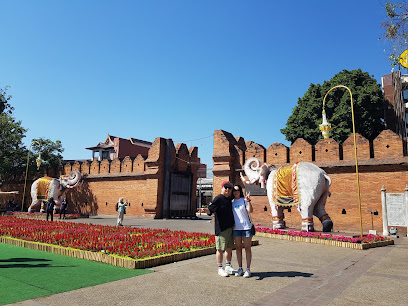
Chiang Mai Night Bazaar
Experience the vibrant atmosphere of Chiang Mai Night Bazaar, where local crafts, street food, and culture come together in a lively night market.
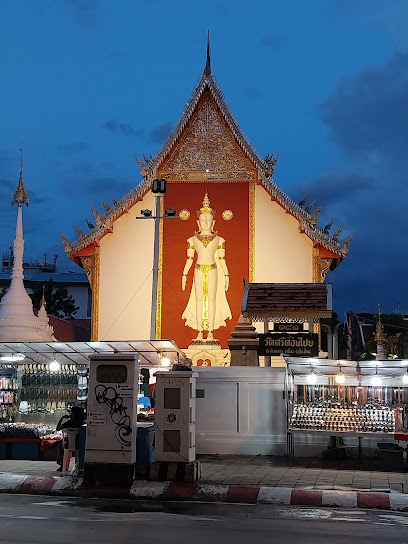
Wat Phra Singh Woramahawihan
Explore the serene beauty of Wat Phra Singh Woramahawihan, a historic Buddhist temple that encapsulates the spiritual essence of Chiang Mai, Thailand.
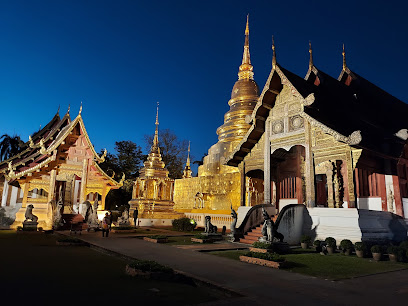
Wat Chedi Luang
Explore the rich history and stunning architecture of Wat Chedi Luang, a must-visit Buddhist temple in the heart of Chiang Mai, Thailand.
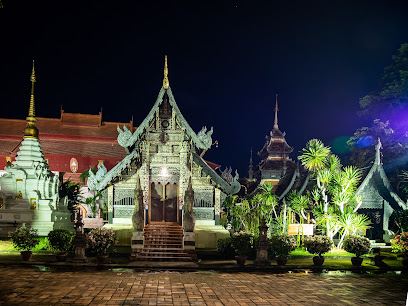
Chiang Mai Night Safari
Discover the enchanting world of wildlife at Chiang Mai Night Safari, a unique night zoo experience in Thailand's cultural capital.
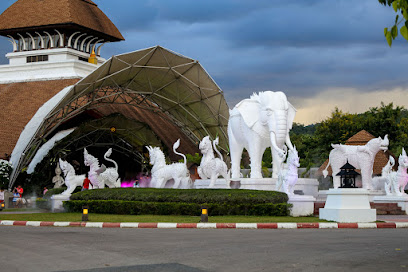
Wat Phra That Doi Suthep
Discover the spiritual heart of Chiang Mai with a visit to Wat Phra That Doi Suthep, a stunning temple offering breathtaking views and rich cultural experiences.
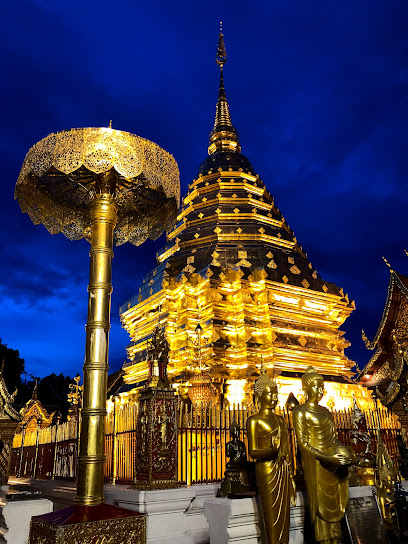
Wat Umong The Suan Buddha Dhamma
Explore the tranquil beauty of Wat Umong, a unique Buddhist temple in Chiang Mai, where spirituality meets nature in a serene atmosphere.
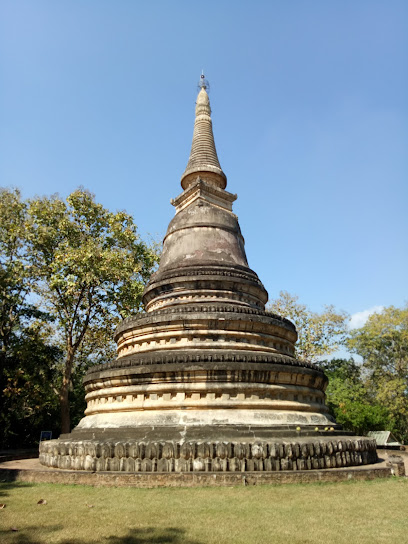
Royal Park Rajapruek
Discover the lush beauty of Royal Park Rajapruek, a stunning botanical garden in Chiang Mai showcasing Thailand's flora and rich cultural heritage.

Three Kings Monument
Discover the rich heritage of Northern Thailand at the Three Kings Monument in Chiang Mai, a symbolic tribute to the region's founding kings.
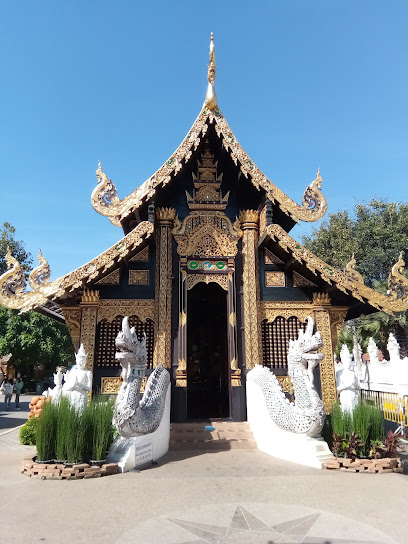
Doi Suthep-Pui National Park
Explore the breathtaking beauty of Doi Suthep-Pui National Park, a natural paradise near Chiang Mai featuring stunning hikes, vibrant wildlife, and the iconic Wat Phra That Doi Suthep.
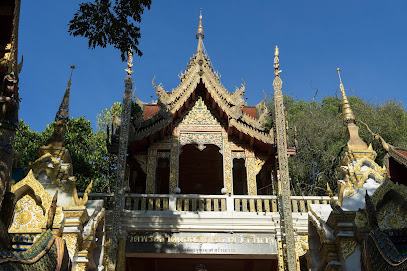
Wat Pha Lat
Discover the tranquility of Wat Pha Lat, a hidden Buddhist temple in Chiang Mai, blending stunning architecture with serene natural beauty.
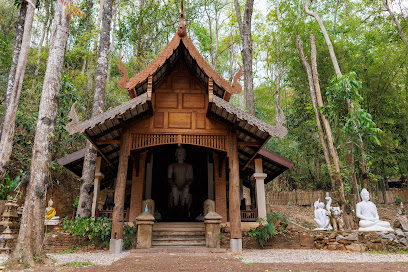
Bhubing Palace
Discover the serene beauty and royal heritage of Bhubing Palace in Chiang Mai, a hidden gem surrounded by lush gardens and breathtaking landscapes.
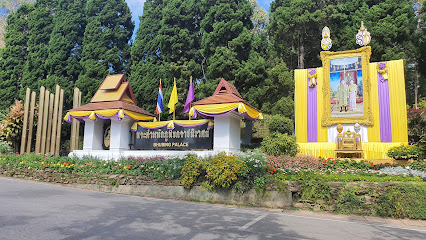
Mae Kha Canal
Explore the serene beauty of Mae Kha Canal in Chiang Mai, where natural tranquility meets rich local culture.
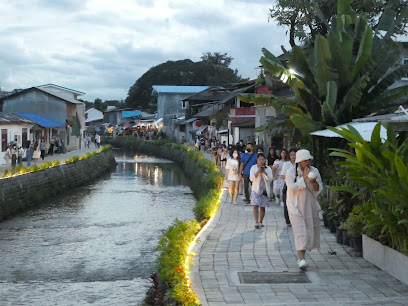
Doi Inthanon
Explore the breathtaking beauty of Doi Inthanon, Thailand's highest peak, with stunning vistas, rich biodiversity, and cultural experiences in Chiang Mai.
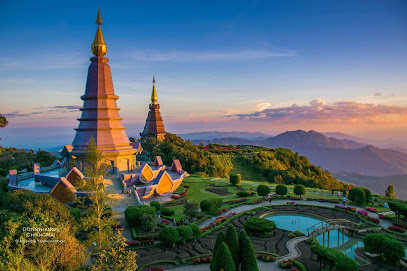
Hidden Village Chiang Mai
Discover the enchanting beauty of Hidden Village Chiang Mai, where nature meets culture in a unique tourist attraction experience.
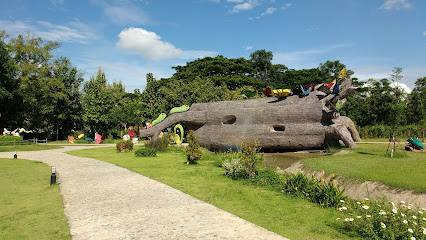
Unmissable attractions to see
Chiang Mai Night Safari
Discover the wonders of the wild at Chiang Mai Night Safari, where nighttime adventures bring animals to life in an unforgettable setting.
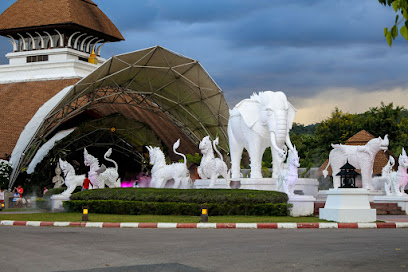
Mae Hia Fresh Market
Explore the flavors and cultures of Chiang Mai at Mae Hia Fresh Market, where local produce and authentic Thai street food come alive.
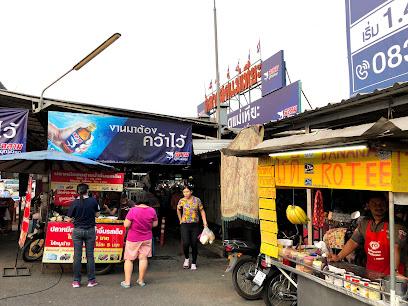
Doi Suthep-Pui National Park
Explore the breathtaking beauty and spiritual significance of Doi Suthep-Pui National Park, a natural gem near Chiang Mai, Thailand, perfect for nature lovers and spiritual seekers.
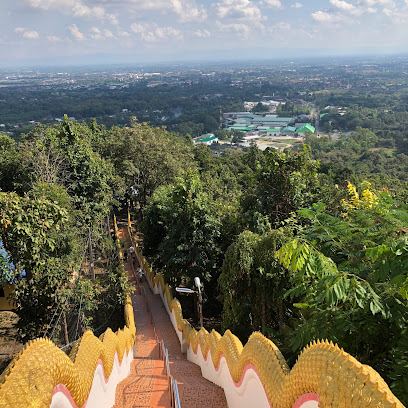
Wat Pa Dara Phirom Phra Aram Luang
Explore the serene beauty of Wat Pa Dara Phirom, a stunning Buddhist temple in Mae Rim, Chiang Mai, offering tranquility and cultural richness.
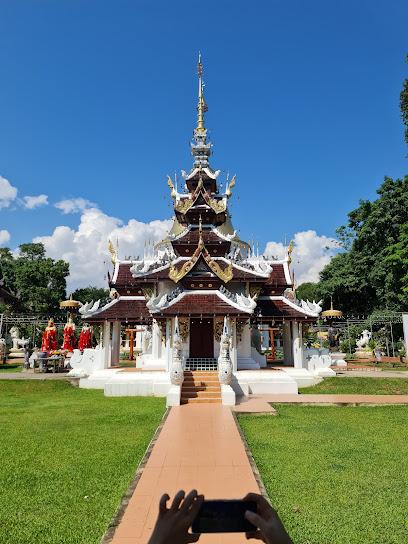
Dantewada
Explore Dantewada, a serene and culturally rich tourist attraction in Chiang Mai's Mae Taeng District, perfect for nature lovers and adventure seekers.
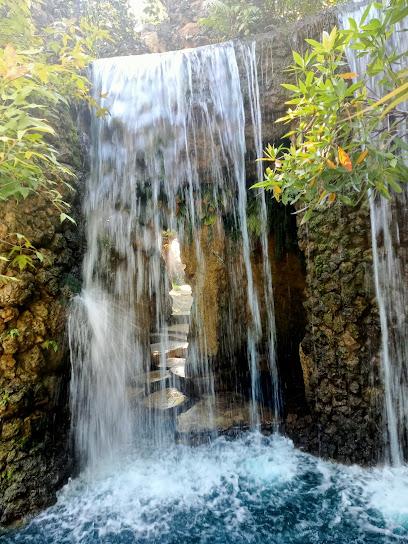
Doi Inthanon National Park
Explore Doi Inthanon National Park, Thailand's highest peak, offering breathtaking views, diverse wildlife, and serene waterfalls in a stunning natural setting.
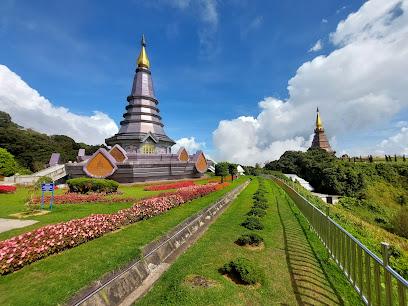
Hidden Village Chiang Mai
Explore the beauty and culture of Thailand at Hidden Village Chiang Mai, a serene retreat in the heart of Chiang Mai's lush landscapes.
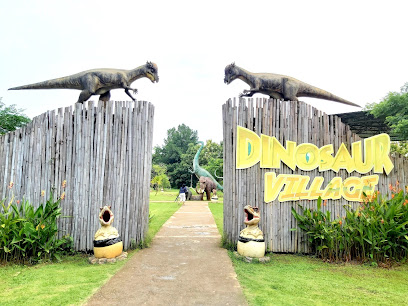
Wiang Kum Kam
Discover the historical treasures of Wiang Kum Kam, an ancient Lanna Kingdom site, and immerse yourself in Chiang Mai's rich cultural heritage.
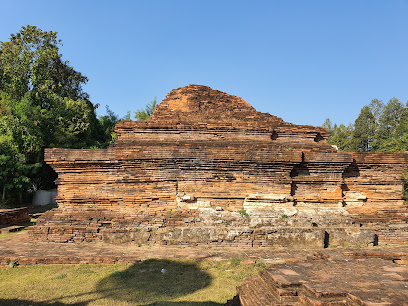
Tham Muang On
Explore Tham Muang On, a stunning cave system in Chiang Mai, Thailand, renowned for its breathtaking limestone formations and serene atmosphere.
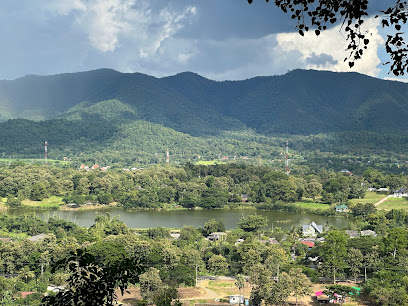
Ram Bar Chiangmai
Discover the vibrant nightlife at Ram Bar Chiangmai, where electrifying performances and a welcoming atmosphere await every visitor.
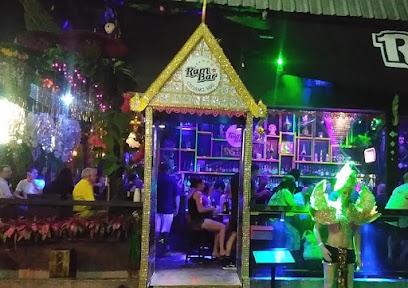
Huai Kaeo Arboretum
Explore the stunning Huai Kaeo Arboretum in Chiang Mai, a peaceful botanical garden perfect for nature lovers and a serene escape from city life.
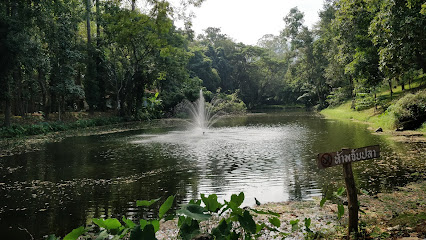
Wang Bua Ban Pha Ngoep
Discover the tranquil beauty of Wang Bua Ban Pha Ngoep in Chiang Mai, a nature lover's paradise filled with scenic trails and breathtaking views.
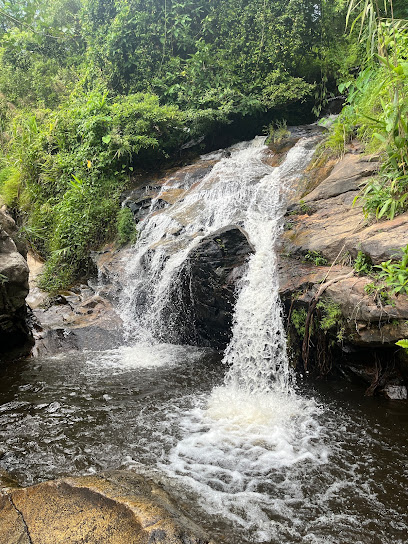
Thai Akha Kitchen - Chiang Mai
Experience the authentic flavors of Northern Thailand at Thai Akha Kitchen in Chiang Mai, offering immersive cooking classes and delicious local cuisine.
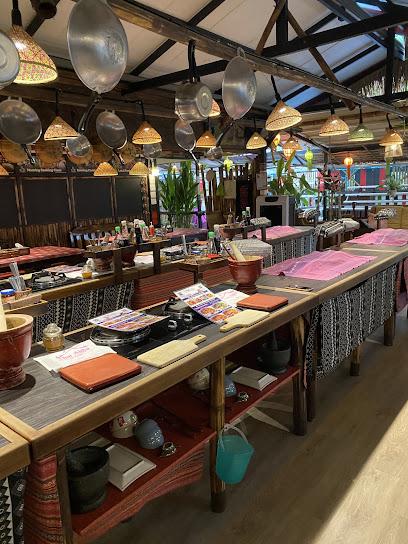
Elephant Rescue Park
Experience the magic of elephants at Elephant Rescue Park, a sanctuary dedicated to their care and rehabilitation in the heart of Chiang Mai.
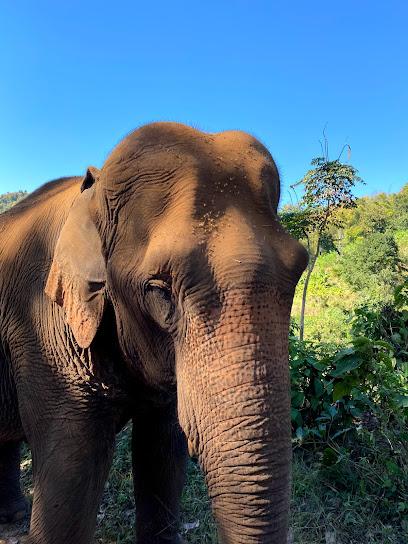
Phra Mahathat Naphamethanidon
Discover the serene beauty and cultural richness of Phra Mahathat Naphamethanidon, a stunning pagoda in Chiang Mai's lush landscapes.
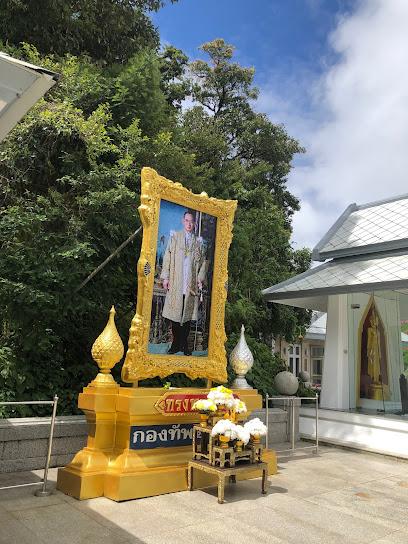
Essential places to dine
The Good View Bar & Restaurant Chiang Mai
Discover authentic Thai cuisine and stunning riverside views at The Good View Bar & Restaurant in Chiang Mai.
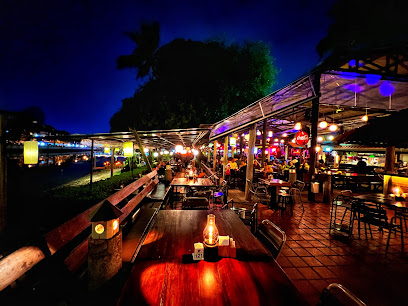
Khaomao-Khaofang Imaginary Jungle
Experience exquisite Thai cuisine in an enchanting jungle setting at Khaomao-Khaofang Imaginary Jungle in Chiang Mai.
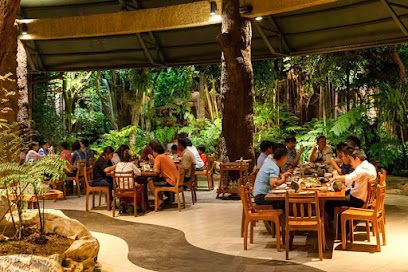
THE HOUSE by Ginger
Discover authentic Thai flavors at THE HOUSE by Ginger in Chiang Mai - where culinary tradition meets modern dining.
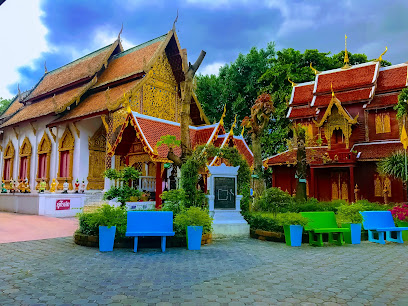
Aroy Dee
Discover Aroy Dee in Chiang Mai: An authentic Thai dining experience with fresh ingredients and traditional flavors at affordable prices.
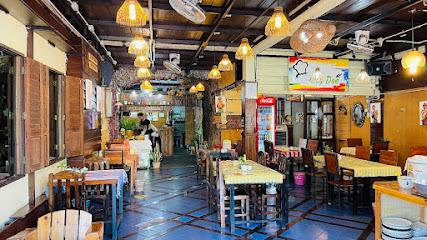
Alice's Restaurant
Discover Alice's Restaurant in Chiang Mai: where Thai meets Japanese cuisine amidst vibrant atmosphere and fresh juices.
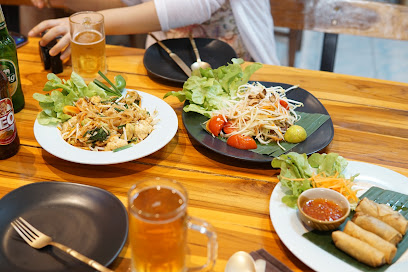
Sababa Hummus Chiang Mai
Discover authentic Mediterranean flavors at Sababa Hummus Chiang Mai – your destination for delicious and healthy dining options.
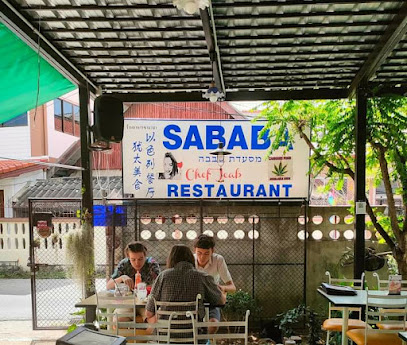
Nun‘s Restaurant
Discover authentic Thai flavors and delightful dishes at Nun's Restaurant in Chiang Mai – where taste meets tradition.
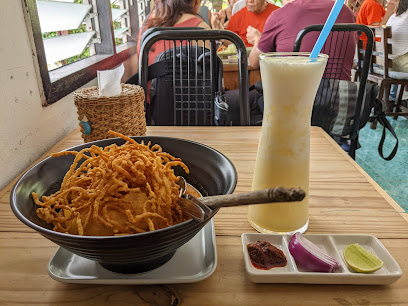
The Swan Burmese Cuisine
Experience the rich flavors of Myanmar at The Swan Burmese Cuisine in Chiang Mai - where every dish tells a story.
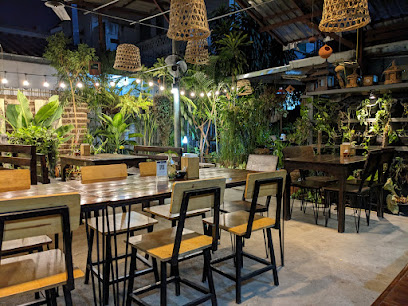
Italics Restaurant
Discover authentic Italian flavors in Chiang Mai at Italics Restaurant—where tradition meets exquisite dining.
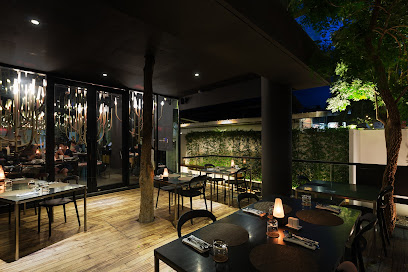
Paak Dang Riverside Restaurant
Savor authentic Thai cuisine at Paak Dang Riverside Restaurant with stunning river views and live music in Chiang Mai.
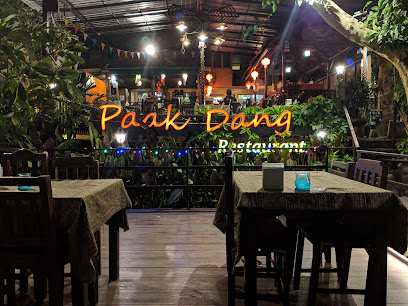
Kiti Panit
Experience authentic Thai cuisine at Kiti Panit in Chiang Mai - where tradition meets flavor in every dish.
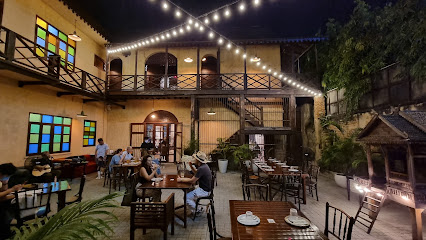
The Service at 1921 House
Experience culinary excellence at The Service at 1921 House in Chiang Mai - where local flavors meet international flair.
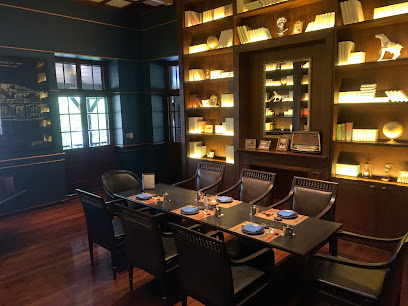
The Chef
Experience authentic Thai cuisine at The Chef in Chiang Mai – a must-visit destination for food enthusiasts seeking flavorful dishes.
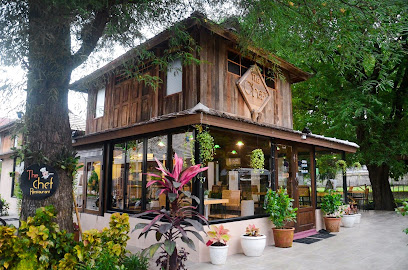
Redbox Restaurant
Experience the essence of Thailand at Redbox Restaurant with authentic dishes that reflect the rich flavors of Thai cuisine.
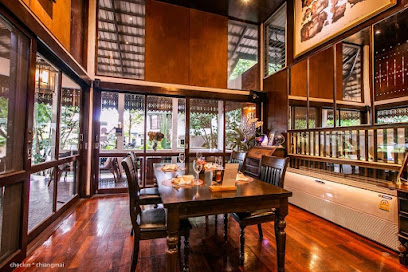
L'éléphant
Experience exquisite French cuisine fused with fresh seafood at L'éléphant in Chiang Mai—an unforgettable culinary adventure awaits!
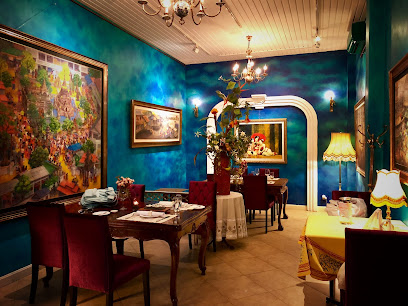
Markets, malls and hidden boutiques
MAYA Lifestyle Shopping Center Chiangmai
Experience the best of shopping, dining, and entertainment at Maya Lifestyle Shopping Center in Chiang Mai, where every visit is an adventure.
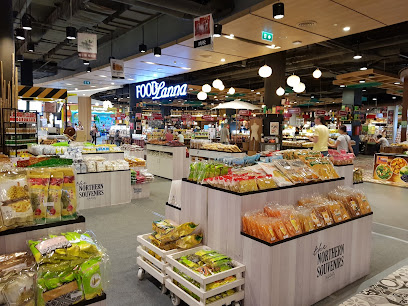
UNIQLO CentralFestival Chiangmai Store
Discover the quintessential clothing store in Chiang Mai at UNIQLO CentralFestival, offering stylish apparel for every occasion.
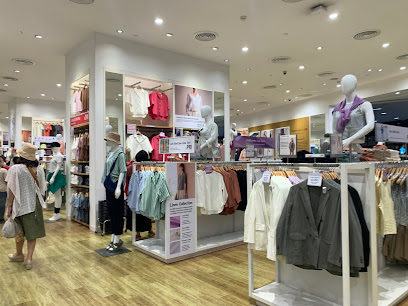
PLAYWORKS SHOP&CAFE
Explore a vibrant souvenir store and cozy cafe in Chiang Mai, perfect for shopping and relaxation amidst local culture.
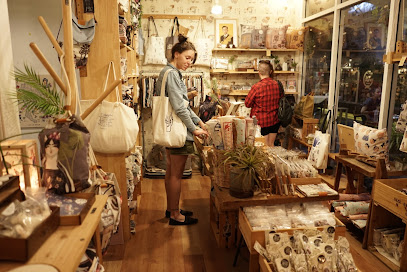
Singing Bowl Shop Chiangmai Thailand
Explore the serene Singing Bowl Shop in Chiang Mai, where handcrafted bowls offer a unique blend of art and sound healing, perfect for spiritual seekers.
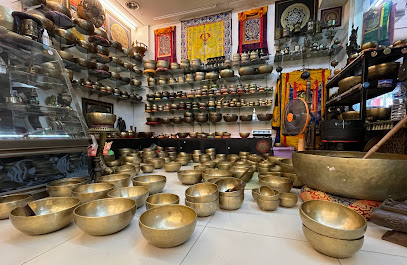
Mosaic Market Chiang Mai
Experience the vibrant blend of art, culture, and culinary delights at Mosaic Market in Chiang Mai, a boutique destination like no other.
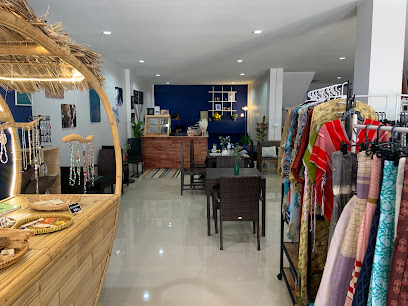
Rojana Art & Souvenirs
Discover authentic Thai craftsmanship at Rojana Art & Souvenirs in Chiang Mai, where every piece tells a story of tradition and artistry.
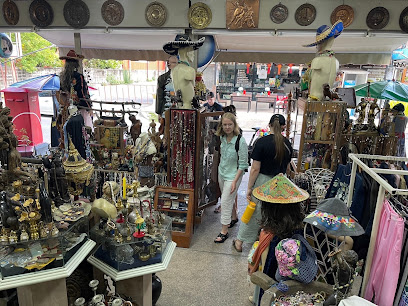
Needle and Clay
Explore Needle and Clay, a charming souvenir store in Chiang Mai, and discover unique handcrafted treasures that embody Thai culture and artistry.
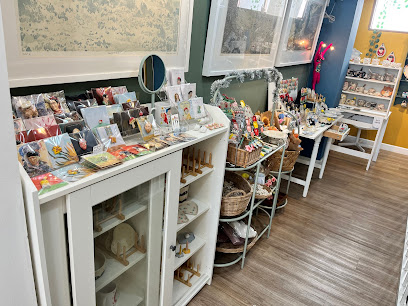
Buya made it
Explore Buya Made It: A Boutique in Chiang Mai Offering Unique Handmade Products and Local Craftsmanship.
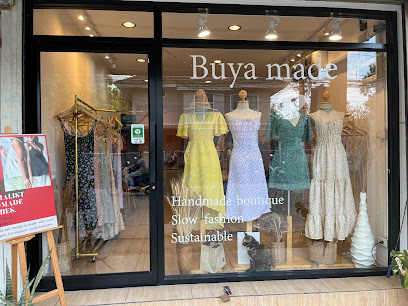
The story life style shop
Discover unique Thai home goods and souvenirs at The Story Life Style Shop in Chiang Mai, where culture meets creativity in every piece.
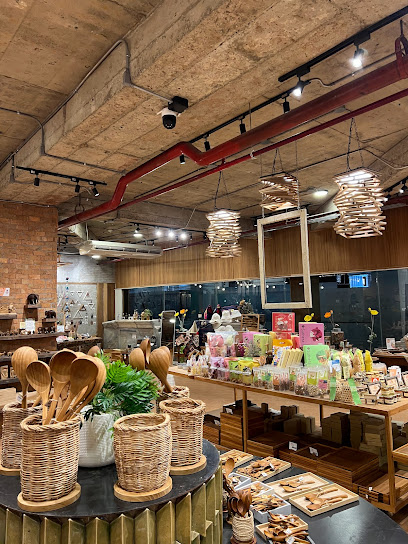
Collectors Store
Explore the charm of vintage fashion at Collectors Store in Chiang Mai, offering a curated selection of unique clothing for men and women.
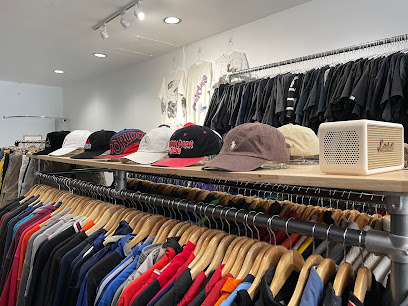
Ickady shop
Explore the unique blend of fashion and flavor at Ickady Shop in Chiang Mai, where stylish clothing meets delicious ice cream and refreshing juices.
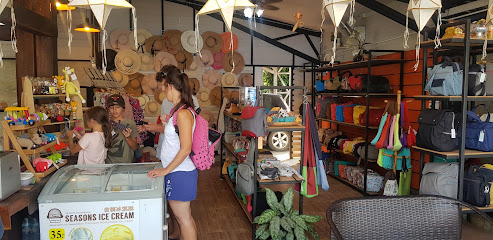
Ari Art Nimman Soi 5 : Selected Handcrafts / Fashion / Small Things
Explore Ari Art Nimman Soi 5, where handcrafted treasures and local artistry come together in the heart of Chiang Mai's vibrant shopping scene.
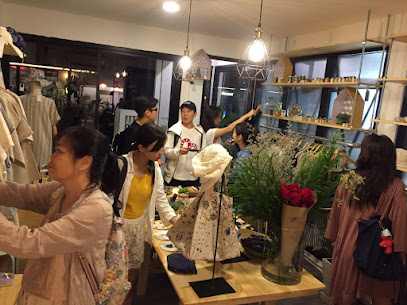
Premium cashmere
Discover luxurious cashmere garments and gifts at Premium Cashmere on Sunday Walking Street, Chiang Mai – where quality meets elegance.
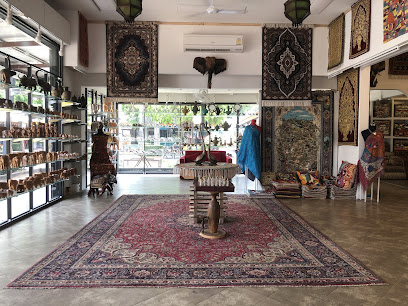
Waikiki Boutique Store
Explore the vibrant Waikiki Boutique Store in Chiang Mai for unique clothing and accessories that reflect local craftsmanship and style.
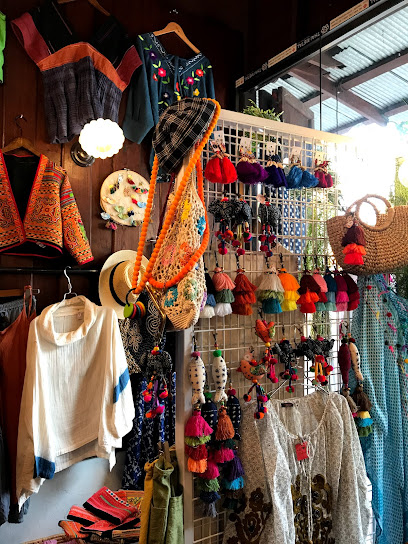
Sawasdee Craft -handmade costume- สวัสดีคราฟท์
Discover unique handmade costumes and accessories at Sawasdee Craft in Chiang Mai – a treasure trove of local craftsmanship.
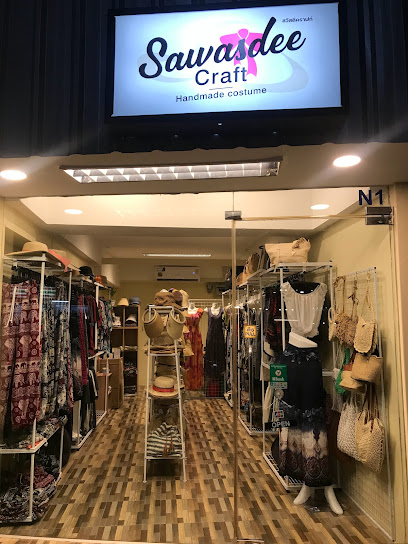
Essential bars & hidden hideouts
Boy Blues Bar
Discover the vibrant blues scene at Boy Blues Bar in Chiang Mai, where live music and a lively atmosphere create unforgettable nights.
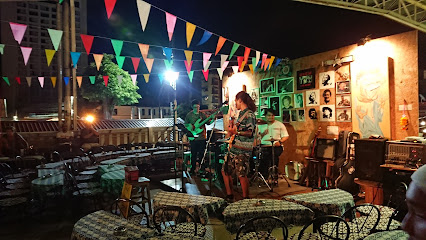
Myst MAYA Chiang Mai
Discover the lively ambiance of Myst MAYA, a top bar and nightclub in Chiang Mai, where exceptional cocktails meet unforgettable nightlife.
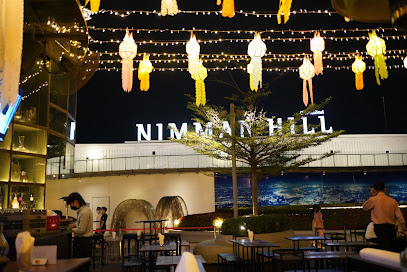
Roots Rock Reggae Chaingmai
Enjoy the vibrant fusion of reggae music and authentic Thai cuisine at Roots Rock Reggae in Chiang Mai, where every night is a celebration.
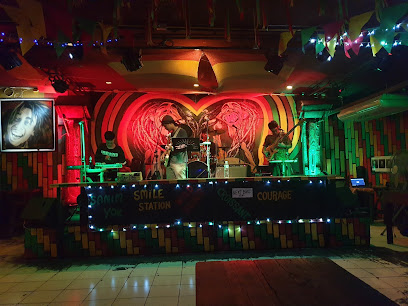
Nophaburi Bar | Thai Cocktail
Discover the vibrant atmosphere and unique Thai-inspired cocktails at Nophaburi Bar, a top destination for cocktail lovers in Chiang Mai.
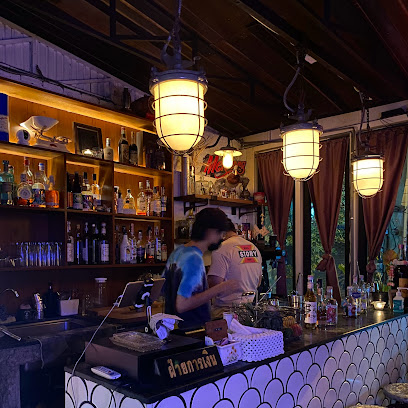
Rise Rooftop Bar
Experience breathtaking views and exquisite cocktails at Rise Rooftop Bar, Chiang Mai's premier destination for nightlife.
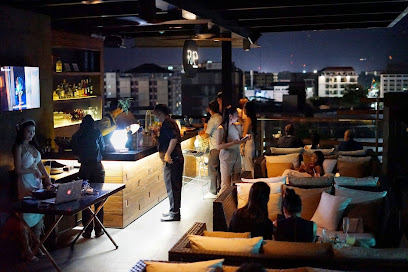
My Place Lounge Chiang Mai
Discover the lively blend of American cuisine and vibrant nightlife at My Place Lounge Chiang Mai, your ultimate sports bar experience.
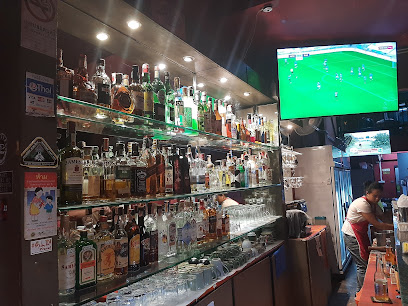
THC Rooftop bar
Discover THC Rooftop Bar in Chiang Mai: A vibrant nightlife spot with panoramic views, unique drinks, and a lively atmosphere perfect for tourists.
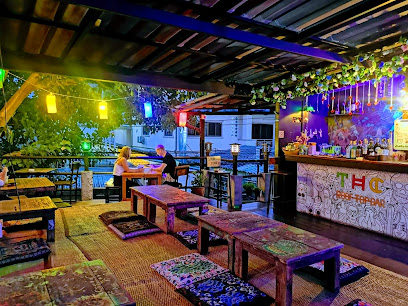
Writer's Club & Wine Bar
Discover a charming blend of literature and fine wines at Chiang Mai's Writer's Club & Wine Bar, a must-visit for book lovers and wine enthusiasts alike.
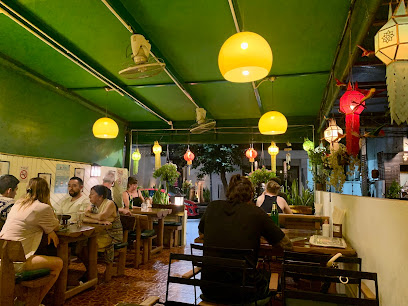
My Bar
Discover the vibrant nightlife at My Bar in Chiang Mai, where great drinks and welcoming vibes await you in a charming setting.
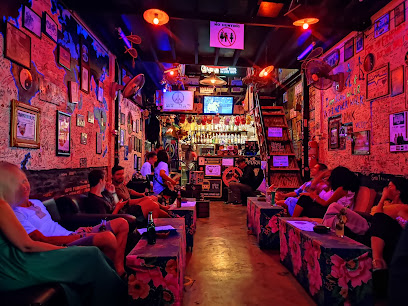
Good bar @ icon park
Discover the lively nightlife at Good Bar @ Icon Park in Chiang Mai, where great drinks, music, and atmosphere await you.
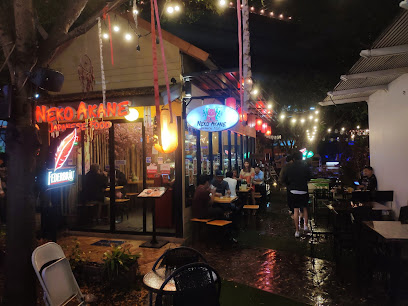
Chill out bar
Experience the vibrant nightlife of Chiang Mai at Chill Out Bar, where great drinks and a welcoming atmosphere await you.
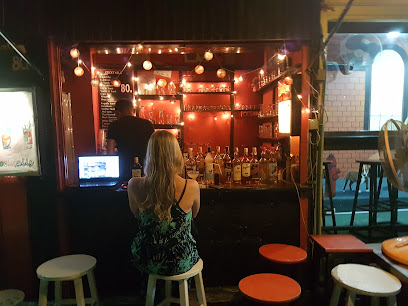
Surr Bar
Experience the vibrant nightlife of Chiang Mai at Surr Bar, where exquisite cocktails and breathtaking views come together for an unforgettable evening.
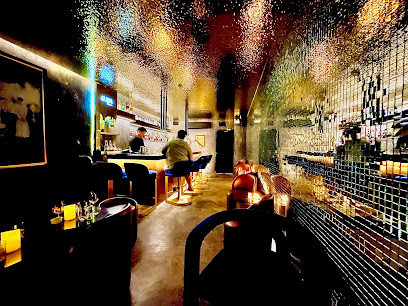
Chiang Mai Saloon
Experience the perfect blend of Thai and Western cuisine at Chiang Mai Saloon, a lively grill and sports bar in the heart of Chiang Mai.
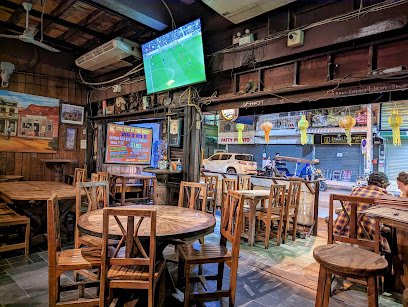
Minimal Bar
Experience the essence of Chiang Mai's nightlife at Minimal Bar, where every sip brings you closer to unforgettable adventures.
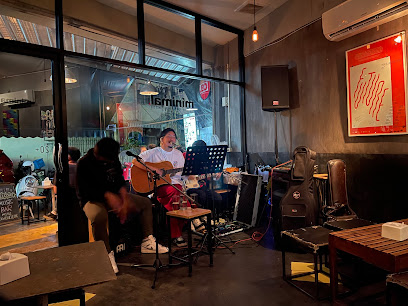
Crazy German Bar
Discover the lively Crazy German Bar in Chiang Mai, where traditional German flavors meet a vibrant Thai atmosphere for an unforgettable nightlife experience.
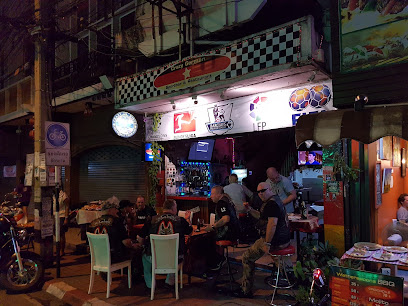
Local Phrases about Chiang Mai Province
-
- Helloสวัสดี
[sawasdee] - Goodbyeลาก่อน
[la kon] - Yesใช่
[chai] - Noไม่
[mai] - Please/You're welcomeโปรด/ยินดี
[prode/yindee] - Thank youขอบคุณ
[kob khun] - Excuse me/Sorryขอโทษ
[kor toht] - How are you?สบายดีไหม
[sabai dee mai] - Fine. And you?ดีค่ะ คุณล่ะ
[dee ka kun la] - Do you speak English?คุณพูดภาษาอังกฤษได้ไหม
[kun poot pah saa ang-grit dai mai] - I don't understandฉันไม่เข้าใจ
[chan mai kao jai]
- Helloสวัสดี
-
- I'd like to see the menu, pleaseขอดูเมนูหน่อย
[kor doo menu noi] - I don't eat meatฉันไม่กินเนื้อ
[chan mai gin nuea] - Cheers!ชนสุด
[chon sut] - I would like to pay, pleaseขอจ่ายเงินหน่อย
[kor jai ngern noi]
- I'd like to see the menu, pleaseขอดูเมนูหน่อย
-
- Help!ช่วยด้วย
[chuay duay] - Go away!ไปไกลๆ
[pai glai glai] - Call the Police!โทรตำรวจ
[tor tam ruat] - Call a doctor!โทรหมอ
[tor mor] - I'm lostฉันสูญหาย
[chan soon hai] - I'm illฉันไม่สบาย
[chan mai sabai]
- Help!ช่วยด้วย
-
- I'd like to buy...ฉันอยากซื้อ...
[chan yak sue...] - I'm just lookingฉันแค่ดูอย่างเดียว
[chan kae doo yang diao] - How much is it?ราคาเท่าไหร่
[ra kha thao rai] - That's too expensiveแพงเกินไป
[paeng geen pai] - Can you lower the price?ลดราคาได้ไหม
[lot ra kha dai mai]
- I'd like to buy...ฉันอยากซื้อ...
-
- What time is it?ตอนนี้เวลาเท่าไหร่
[ton nee welaa thao rai] - It's one o'clockเป็นเวลาหนึ่งโมง
[pen welaa nueang mong] - Half past (10)ครึ่ง (10)
[kroong sip] - Morningเช้า
[chao] - Afternoonบ่าย
[bai] - Eveningเย็น
[yen] - Yesterdayเมื่อวาน
[meua waan] - Todayวันนี้
[wan nee] - Tomorrowพรุ่งนี้
[proong nee] - 1หนึ่ง
[nueang] - 2สอง
[song] - 3สาม
[sam] - 4สี่
[see] - 5ห้า
[ha] - 6หก
[hok] - 7เจ็ด
[jet] - 8แปด
[paed] - 9เก้า
[gao] - 10สิบ
[sip]
- What time is it?ตอนนี้เวลาเท่าไหร่
-
- Where's a/the...?...อยู่ที่ไหน
[...yoo tee nai] - What's the address?ที่อยู่อยู่ที่ไหน
[tee yoo yoo tee nai] - Can you show me (on the map)?แสดงให้ดู (บนแผนที่) ได้ไหม
[saeng hai doo (bon paen tee) dai mai] - When's the next (bus)?เมื่อไรจะมี (รถบัส) ครั้งต่อไป
[meua rai ja mee (rot bus) krang dtao pai] - A ticket (to ....)บัตร (ไป...)
[bat bpai...]
- Where's a/the...?...อยู่ที่ไหน
History of Chiang Mai Province
-
Chiang Mai, meaning 'New City,' was founded in 1296 by King Mengrai. It became the capital of the Lanna Kingdom, a powerful and culturally rich kingdom in northern Thailand. The city was strategically positioned on the Ping River, which contributed to its growth as a center of trade, religion, and culture.
-
During the 14th and 15th centuries, Chiang Mai flourished under the reign of King Tilokkarat. This era is often referred to as the 'Golden Age of Lanna.' The city saw the construction of many significant temples, including Wat Chedi Luang and Wat Phra Singh, which remain important cultural landmarks to this day.
-
In 1558, Chiang Mai fell to the Burmese forces and remained under Burmese control for over two centuries. Despite the occupation, the city retained much of its cultural heritage. Many of the temples and cultural practices from this period still reflect a blend of Thai and Burmese influences.
-
In 1775, King Taksin of Thonburi and his successor King Rama I of the Rattanakosin Kingdom successfully liberated Chiang Mai from Burmese rule. The city was gradually integrated into Siam (modern-day Thailand), marking the beginning of a new chapter in its history. The integration process involved both military and diplomatic efforts, and it solidified Chiang Mai's place within the broader Thai nation.
-
The 20th century brought significant changes to Chiang Mai as it modernized and expanded. The arrival of the railway in 1921 connected the city more closely with Bangkok and other parts of Thailand. Chiang Mai University, established in 1964, became a center for education and research, further contributing to the city's growing importance. Today, Chiang Mai is a blend of ancient traditions and modern developments, attracting tourists from around the world.
-
Chiang Mai is renowned for its vibrant cultural heritage and festivals. The Yi Peng Lantern Festival and Songkran (Thai New Year) are two of the most famous events celebrated with great enthusiasm. The city is also known for its traditional Lanna architecture, handicrafts, and cuisine, which continue to draw visitors seeking an authentic Thai cultural experience.
Chiang Mai Province Essentials
-
Chiang Mai Province is easily accessible by air, road, and rail. Chiang Mai International Airport (CNX) is the main gateway, with numerous domestic and international flights. From Bangkok, the journey by air takes about 1 hour. Alternatively, you can take a bus or train from Bangkok to Chiang Mai, which takes around 10-12 hours. Buses are frequent and offer various classes of service, while the train ride offers scenic views of the countryside.
-
Within Chiang Mai Province, transportation options include tuk-tuks, songthaews (red trucks), taxis, motorbike rentals, and bicycles. Tuk-tuks are convenient for short distances, while songthaews operate on fixed routes and are an economical option. Taxis are available but may be more expensive. Renting a motorbike or bicycle is a great way to explore the city and surrounding areas at your own pace. Ride-hailing services like Grab are also available.
-
The official currency in Thailand is the Thai Baht (THB). Credit cards are widely accepted in hotels, restaurants, and larger shops, but it is advisable to carry cash for smaller establishments and markets. ATMs are plentiful in Chiang Mai, and currency exchange services are also available at the airport, banks, and exchange booths throughout the city.
-
Chiang Mai is generally a safe destination for tourists. However, petty crimes such as pickpocketing and bag snatching can occur, especially in crowded areas and night markets. Areas like the Night Bazaar and the Old City can be hotspots for such crimes. Always be vigilant, keep an eye on your belongings, and avoid walking alone at night in poorly lit areas.
-
In case of emergency, dial 191 for police assistance and 1669 for medical emergencies. Chiang Mai has several hospitals with good medical facilities, such as Chiang Mai Ram Hospital and Bangkok Hospital Chiang Mai. It is recommended to have travel insurance that covers medical emergencies. Pharmacies are widely available for minor health issues.
-
Fashion: Do dress modestly, especially when visiting temples. Avoid wearing revealing clothing. Religion: Do respect Buddhist customs, remove your shoes before entering temples, and avoid pointing your feet at religious objects. Public Transport: Do be courteous and offer your seat to elderly passengers. Don't eat or drink on public transport. Greetings: Do greet people with a 'wai' (a slight bow with palms pressed together). Eating & Drinking: Do try local dishes and accept food offerings graciously. Avoid using your left hand to eat, as it is considered unclean.
-
To experience Chiang Mai like a local, visit the local markets such as Warorot Market, where you can find fresh produce and traditional Thai goods. Take part in a traditional Thai cooking class to learn about local cuisine. Explore the hidden temples and backstreets of the Old City by bicycle. Engage with locals, who are often friendly and willing to share insights about their culture and history. Don't miss the Sunday Walking Street Market for an authentic local experience.
Trending Landmarks in Chiang Mai Province
-
Tha Phae Gate
-
Chiang Mai Night Bazaar
-
Wat Phra Singh Woramahawihan
-
Wat Chedi Luang
-
Chiang Mai Night Safari
-
Wat Phra That Doi Suthep
-
Wat Umong The Suan Buddha Dhamma
-
Royal Park Rajapruek
-
Three Kings Monument
-
Doi Suthep-Pui National Park
-
Wat Pha Lat
-
Bhubing Palace
-
Mae Kha Canal
-
Doi Inthanon
-
Hidden Village Chiang Mai
Nearby Cities to Chiang Mai Province
-
Things To Do in Pai
-
Things To Do in Mae Hong Son
-
Things To Do in Chiang Rai
-
Things To Do in Kyaiktiyo
-
Things To Do in Nan
-
Things To Do in Sukhothai
-
Things To Do in Hpa-An
-
Things To Do in Inle Lake
-
Things To Do in Naypyidaw
-
Things To Do in Kalaw
-
Things To Do in Yangon
-
Things To Do in Loei
-
Things To Do in Pyay
-
Things To Do in Muang Sing
-
Things To Do in Luang Prabang













